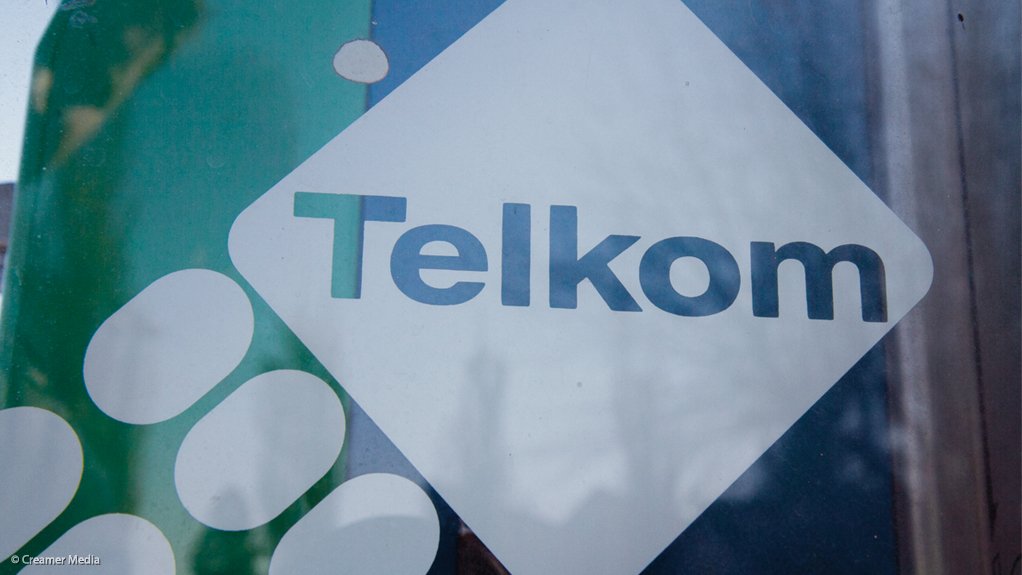ICT regulatory tweaks needed to remain competitive – Telkom
As mobile and fixed-line telecommunications collide, evolving dynamics have necessitated change, a panel of representatives of telecommunications group Telkom suggested on Thursday.
The panel was speaking at public hearings facilitated by the Independent Communications Authority of South Africa (Icasa) on the state of competitiveness in South Africa’s information and communication technology (ICT) market, being held from October 1 to 3, in Sandton.
The panel, comprising Telkom’s Siyabonga Mahlangu, Dr Richard Majoor and Liza Roussot, pointed to increasing convergence and the evolution of competition requiring targeted and specific regulations to ensure a level playing field.
Majoor explained that the telecommunications market had shifted from separate fixed-line and mobile sectors to a more converged environment despite the competitive landscape between the two – mobile communications boasted the bulk of the market.
“Fixed and mobile markets are converging … [leaving the separation of the two] no longer relevant,” he said.
Fixed broadband continued to grow, despite the number of fixed-line subscribers contracting at a compound annual growth rate (CAGR) of 2.3%, with expectations that the next five years would see subscriber numbers decline by a CAGR of 5.5% a year.
Mobile broadband, seen as a substitute by Telkom for fixed-line broadband, would grow at a quicker rate owing to the rapid penetration, now at 40%, of smartphones, and the uptake of dongles and tablets.
However, the pressure was on to have broadband revenues make up the gap left by declining voice revenues and volumes – in both fixed and mobile – which had experienced a 2% contraction last year.
The convergence of the two technologies was intensifying competition and promoting more affordable services and new products, but consolidation was becoming evermore essential to ensuring sustainability in a market where prices were plunging and costs rising.
Mahlangu explained that consolidation within, and between, the fixed and mobile players would support investments and provide the economies of scale to compete within a lagging economy.
“We have reached a level of saturation and with [increasing challenges in] tough markets, economies of scale and partnered investments [would be critical] going forward,” he pointed out.
Ironically, the convergence and rapid broadband growth had produced a new threat – over-the-top (OTT) voice over Internet protocol (VoIP) services, such as Google Hangout VoIP and the soon-to-be-offered free voice calls over WhatsApp.
South Africa’s uptake of OTT was in line with global trends, but would cost the sector $479-billion between 2012 and 2020.
OTT VoIP on mobile platforms remained relatively small, but threatened to grow exponentially on the back of the popularity and convenience of mobile broadband.
OTT was reducing returns on investments and the ability of operators to cross-subsidise lossmaking services such as universal service obligations and rural telecommunication access.
“A balance needs to be struck between OTT players, which drive lower prices, and network operators, which are required to invest in the network that allows the OTT business model to exist,” Majoor said.
Mahlangu added that the growth of OTT players was fundamentally changing the shape of the telecommunications industry in South Africa and regulators should consider the impact of OTTs on existing operator business models and regulate OTTs directly to ensure their fair and proportionate contribution to the development of the ICT sector through means such as interconnection charges.
He proposed that regulations should be adjusted to be forward-looking, proportionate, relevant and transparent, as well as ensure financial sustainability and technology neutrality, to deal with convergence and the evolution of competition.
Comments
Press Office
Announcements
What's On
Subscribe to improve your user experience...
Option 1 (equivalent of R125 a month):
Receive a weekly copy of Creamer Media's Engineering News & Mining Weekly magazine
(print copy for those in South Africa and e-magazine for those outside of South Africa)
Receive daily email newsletters
Access to full search results
Access archive of magazine back copies
Access to Projects in Progress
Access to ONE Research Report of your choice in PDF format
Option 2 (equivalent of R375 a month):
All benefits from Option 1
PLUS
Access to Creamer Media's Research Channel Africa for ALL Research Reports, in PDF format, on various industrial and mining sectors
including Electricity; Water; Energy Transition; Hydrogen; Roads, Rail and Ports; Coal; Gold; Platinum; Battery Metals; etc.
Already a subscriber?
Forgotten your password?
Receive weekly copy of Creamer Media's Engineering News & Mining Weekly magazine (print copy for those in South Africa and e-magazine for those outside of South Africa)
➕
Recieve daily email newsletters
➕
Access to full search results
➕
Access archive of magazine back copies
➕
Access to Projects in Progress
➕
Access to ONE Research Report of your choice in PDF format
RESEARCH CHANNEL AFRICA
R4500 (equivalent of R375 a month)
SUBSCRIBEAll benefits from Option 1
➕
Access to Creamer Media's Research Channel Africa for ALL Research Reports on various industrial and mining sectors, in PDF format, including on:
Electricity
➕
Water
➕
Energy Transition
➕
Hydrogen
➕
Roads, Rail and Ports
➕
Coal
➕
Gold
➕
Platinum
➕
Battery Metals
➕
etc.
Receive all benefits from Option 1 or Option 2 delivered to numerous people at your company
➕
Multiple User names and Passwords for simultaneous log-ins
➕
Intranet integration access to all in your organisation





















